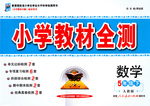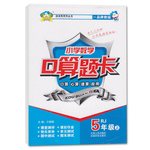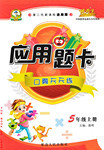题目内容
阅读理解
My father was Chief Engineer of a merchant ship, which was sunk in World War Ⅱ. The book
Night of the Uboats told the story.
Memories
In September, 1940, my mother, sister and I went to Swansea, where my father's ship was
getting ready to sail. We brought him a family photograph to be kept with him at all times and keep
him safe.
Then I remember my mother lying face down, sobbing. She had heard from a friend that the ship
had been sunk by a torpedo(鱼雷).
I can remember the arrival of the telegram(电报), which in those days always brought bad news.
My grandmother opened it. It read, "Safe.Love Ted."
My most vivid memory is being woken and brought down to sit on my father's knee, his arm in a
bandage.
He was judged unfit to return to sea and took a shore job in Glasgow for the rest of the war. For
as long as I can remember, he had a weak heart.Mother said it was caused by the torpedoes. He
said it was because of the cigarettes. Whichever, he died suddenly in his early 50s.
Ten years later I read Night of the Uboats and was able to complete the story.
Torpedo
One torpedo struck the ship. Father was in the engine room, where the third engineer was killed.
He shut down the engines to slow the ship making it easier for it to be abandoned.
By the time he got on deck(甲板) he was alone. Every lifeboat was gone except one which had
stuck fast. When he tried to cut it free, it swung against the ship, injuring his hand and arm.He had
no choice but to jump-still with the photograph in his pocket.
Three days later, he and other survivors were safe in Glasgow.All 23 with him signed the back of
the photograph.
A Toast
In my room is the book and the photograph. Often, glass in hand, I have wondered how I would
have dealt with an explosion, a sinking ship, a jump into a vast ocean and a wait for rescue? Lest(以
免)we forget, I have some more whisky and toast the heroes of the war.
1. We can infer that the mother and children went to Swansea________.
A. to meet a friend
B. to see the father off
C. to take a family photo
D. to enjoy the sailing of the ship
2. What did the author learn about the father from the telegram?
A. He was still alive.
B. His knee was broken.
C. His ship had been sunk.
D. He had arrived in Glasgow.
3. The underlined word "it" in Paragraph 6 refers to the father's________.
A. weak heart
B. taking a shore job
C. failure to return to sea
D. injury caused by a torpedo
4. What can we know about the author's father after his ship was attacked?
A. He lost his arm.
B. He repaired the engines.
C. He managed to take a lifeboat.
D. He was the last to leave the ship.
5. What is the passage mainly about?
A. A group of forgotten heroes.
B. A book describing a terrifying battle.
C. A ship engineer's wartime experience.
D. A merchant's memories of a sea rescue.
Night of the Uboats told the story.
Memories
In September, 1940, my mother, sister and I went to Swansea, where my father's ship was
getting ready to sail. We brought him a family photograph to be kept with him at all times and keep
him safe.
Then I remember my mother lying face down, sobbing. She had heard from a friend that the ship
had been sunk by a torpedo(鱼雷).
I can remember the arrival of the telegram(电报), which in those days always brought bad news.
My grandmother opened it. It read, "Safe.Love Ted."
My most vivid memory is being woken and brought down to sit on my father's knee, his arm in a
bandage.
He was judged unfit to return to sea and took a shore job in Glasgow for the rest of the war. For
as long as I can remember, he had a weak heart.Mother said it was caused by the torpedoes. He
said it was because of the cigarettes. Whichever, he died suddenly in his early 50s.
Ten years later I read Night of the Uboats and was able to complete the story.
Torpedo
One torpedo struck the ship. Father was in the engine room, where the third engineer was killed.
He shut down the engines to slow the ship making it easier for it to be abandoned.
By the time he got on deck(甲板) he was alone. Every lifeboat was gone except one which had
stuck fast. When he tried to cut it free, it swung against the ship, injuring his hand and arm.He had
no choice but to jump-still with the photograph in his pocket.
Three days later, he and other survivors were safe in Glasgow.All 23 with him signed the back of
the photograph.
A Toast
In my room is the book and the photograph. Often, glass in hand, I have wondered how I would
have dealt with an explosion, a sinking ship, a jump into a vast ocean and a wait for rescue? Lest(以
免)we forget, I have some more whisky and toast the heroes of the war.
1. We can infer that the mother and children went to Swansea________.
A. to meet a friend
B. to see the father off
C. to take a family photo
D. to enjoy the sailing of the ship
2. What did the author learn about the father from the telegram?
A. He was still alive.
B. His knee was broken.
C. His ship had been sunk.
D. He had arrived in Glasgow.
3. The underlined word "it" in Paragraph 6 refers to the father's________.
A. weak heart
B. taking a shore job
C. failure to return to sea
D. injury caused by a torpedo
4. What can we know about the author's father after his ship was attacked?
A. He lost his arm.
B. He repaired the engines.
C. He managed to take a lifeboat.
D. He was the last to leave the ship.
5. What is the passage mainly about?
A. A group of forgotten heroes.
B. A book describing a terrifying battle.
C. A ship engineer's wartime experience.
D. A merchant's memories of a sea rescue.
1-5: BAADC

练习册系列答案
 小学教材全测系列答案
小学教材全测系列答案 小学数学口算题卡脱口而出系列答案
小学数学口算题卡脱口而出系列答案 优秀生应用题卡口算天天练系列答案
优秀生应用题卡口算天天练系列答案
相关题目
| 阅读理解 | |||
| My father enjoys bike riding.Ever since I was little, I've always loved going biking with my dad. __1__, as I became a teenager, other things began to draw my __2__.Suddenly, it was important to do things with __33__.I saw my dad every evening at home.Why did I have to __4__ my Sundays to allday bike trips with him, too? If my indifference (冷漠) hurt him, my father kept __5__, but he would always let me know when he was planning a bike trip __6__ I wanted to come. It was a Sunday morning, and I was in low __7__.Two of my friends had gone to the movies without inviting me.Just then my father __8__ my room."It's a beautiful day.What to go for a __9__, today, Beck?""Leave me alone!" I impatiently __10__. Those were the last words I said to him before he left the house that __11__. Several hours later, the police called us, __12__ us that Dad had a traffic accident.My father's injuries were serious.It took several days before he could __13__ speak.Beside his bed I held his hand gently, __14__ of hurting him. "Daddy...I'm sorry...""It's okay, sweetheart.I'll be okay." "No," I said, "I __15__ what I said to you that day.You know, that morning?" "Sweetheart, I don't __16__ anything about that day.I remember kissing you goodnight the night before, though." He __17__ a weak smile. I felt regretful for my thoughtless remark, for I __18__ wanted him to leave me alone.My teacher once told me that __19__ have immeasurable power.They can hurt or they can heal.And we all have the __20__ to choose our words.I intend to do that very carefully from now on. | |||
| ( )1. A. Therefore ( )2. A. attention ( )3. A. Dad ( )4. A. start ( )5. A. silent ( )6. A. unless ( )7. A. spirits ( )8. A. left ( )9. A. ride ( )10. A. whispered ( )11. A. moment ( )12. A. convincing ( )13. A. eventually ( )14. A. tired ( )15. A. discuss ( )16. A. hate ( )17. A. got ( )18. A. often ( )19. A. apologies ( )20. A. experience |
B. Instead B. sight B. friends B. save B. busy B. in case B. conditions B. checked B. walk B. warned B. morning B. reminding B. generally B. afraid B. think B. forget B. expressed B. never B. promises B. honor |
C. Besides C. effort C. teachers C. devote C. asleep C. so that C. states C. entered C. picnic C. announced C. afternoon C. informing C. strictly C. aware C. care C. remember C. exchanged C. even C. smiles C. power |
D. However D. energy D. brothers D. waste D. awake D. as if D. hopes D. knocked D. game D. shouted D. evening D. phoning D. broadly D. sorry D. mean D. like D. managed D. once D. words D. desire |
 t fit himself.
t fit himself.